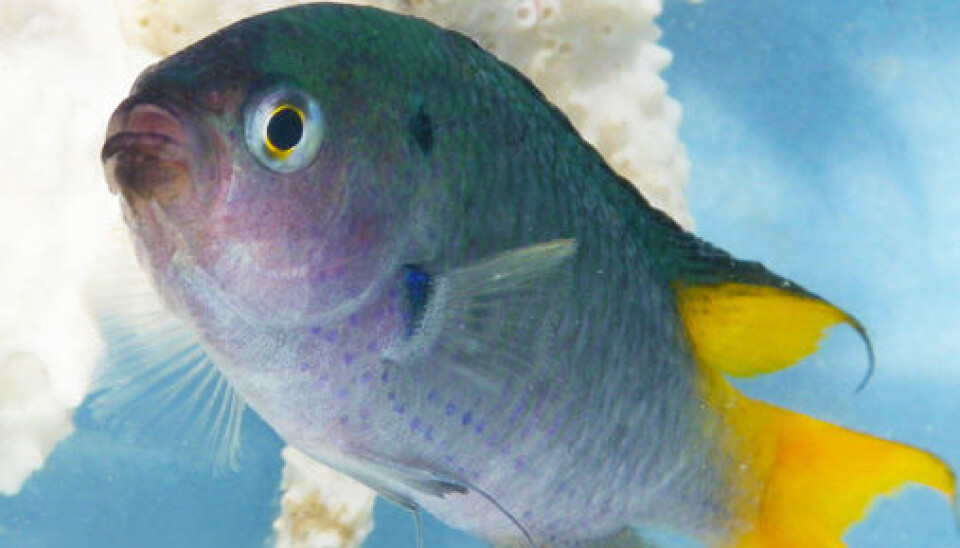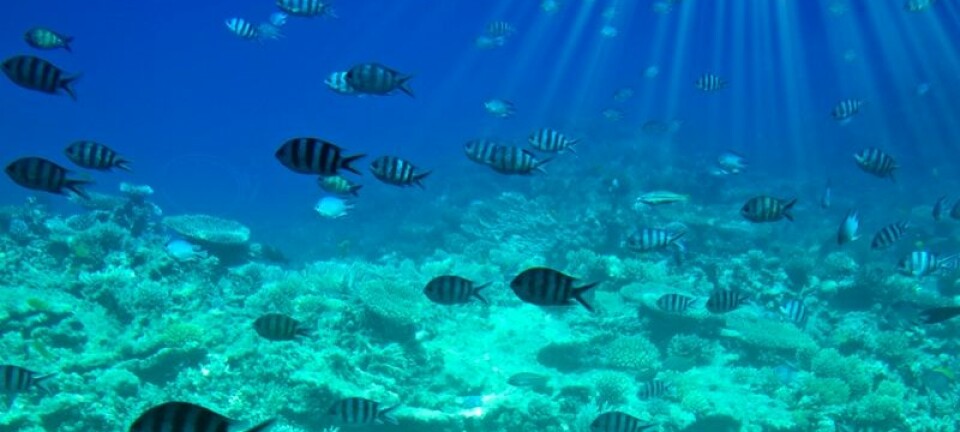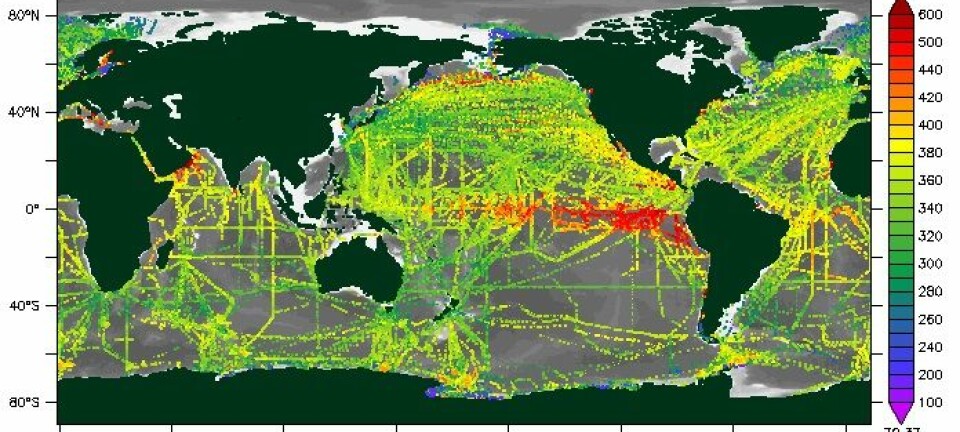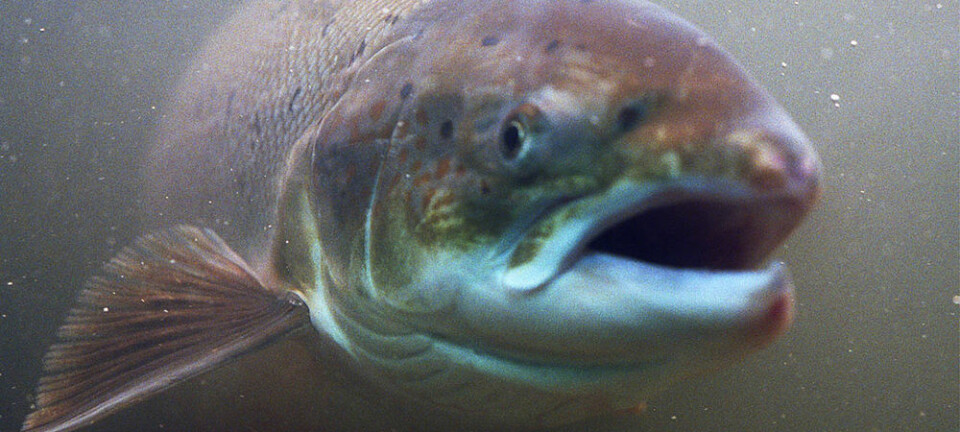
CO2 is confusing fish
OPINION: CO2 is affecting the central nervous system of fishes in the sea, with serious consequences for their chances of survival.
Denne artikkelen er over ti år gammel og kan inneholde utdatert informasjon.
Atmospheric CO2 levels are projected to rise in the coming years, and as atmospheric CO2 generally equilibrates with surface waters, a corresponding rise will be experienced by many life forms in the oceans.
Alarmingly, the CO2 concentrations we could see as early as the end of this century affect fishes’ ability to hear, smell, orient and evade predators.
In a new study that was carried out in collaboration with researchers from James Cook University in Australia, we have demonstrated that elevated CO2 in the water interferes with how nerve cells communicate in the brain of coral reef fish.
CO2 disrupts brain function
Elevated CO2 levels in seawater were found to disrupt the function of a key brain molecule, called the GABA-A receptor. The GABA-A receptor binds the neurotransmitter GABA, an important signalling molecule in the brain. Disturbing this molecule causes marked changes in the behaviour and sensory abilities of fish. This poses a direct and previously unknown threat to sea life.
Our collaborative partners, Philip Munday and his colleagues, have previously shown that the sense of smell of young coral reef fish is harmed by higher CO2 in the water. These studies showed that after exposure to elevated CO2 levels, coral reef fish found it harder to locate a reef to settle on, and to avoid the smell of a predatory fish. Indeed, CO2 exposed fish became attracted to the predator’s odour, something that will obviously affect their chances of survival.
Other experiments showed that the fish also lost their natural instinct to turn left or right – an important factor in schooling behaviour and in fast avoidance responses. This makes them more vulnerable, as lone and hesitant fish are more easily eaten by predatory fish.
These previous results made us suspect that CO2 was affecting the GABA-A receptor. The function of the receptor is known to be labile, since it depends on relative quantities of certain ions in the brain, including chloride and bicarbonate. A change in the prevalence of these compounds can switch the GABA-A receptor from inhibiting to stimulating neuronal activity. The concentrations of these two ions could have been altered by exposure to high CO2 levels, leading to a reversal of the GABA-A receptor function.
Became left-right confused
To test this, we therefore designed experiments where we treated two species of coral reef fish, a damselfish and a clownfish, with CO2 at a level that is expected to occur on earth within 100 years (i.e. about twice that of today’s level).
This caused the fish to lose their aversion to the odour of a predatory fish. It also caused them to lose their preference for turning left or right at an intersection, which is comparable to handedness in humans.
We then reduced the activity of the GABA-A receptor by treating the fish with a specific GABA-A receptor blocker. The results were astonishing.
After treating the fish for half-an-hour with the blocker, all CO2 exposed fish regained their instinct to turn left or right and they also regained their ability to avoid the smell of predatory fish. This strongly indicates that CO2 is affecting the behaviour of these fish by interfering with the GABA-A receptor.
Fish more likely to be affected by CO2
The GABA-A receptor is universally prevalent in the central nervous system, and regulates the activity of many, possibly most, nerve cells. For this reason, CO2 emissions may have wide ranging consequences for animal behaviour and survival.
It is worrying that almost all animals have GABA-A receptors, but we expect that the effects of elevated CO2 are likely to be most felt by animals breathing in water, like fishes and many invertebrates.
This is because they normally have lower blood CO2 levels than land living animals, and their blood CO2 content is therefore more affected by ambient CO2. The main impact will probably be on those that use a lot of oxygen and therefore have to expose a large gill surface area to the water, and that live in parts of the ocean where CO2 levels have been relatively stable for a long time. This could include the early life stages of many fishes and commercially important fishes like mackerel and tuna.
We have now established that it is not simply acidification of the oceans that is causing disruption. The actual CO2 itself is damaging the fishes’ nervous systems.


































